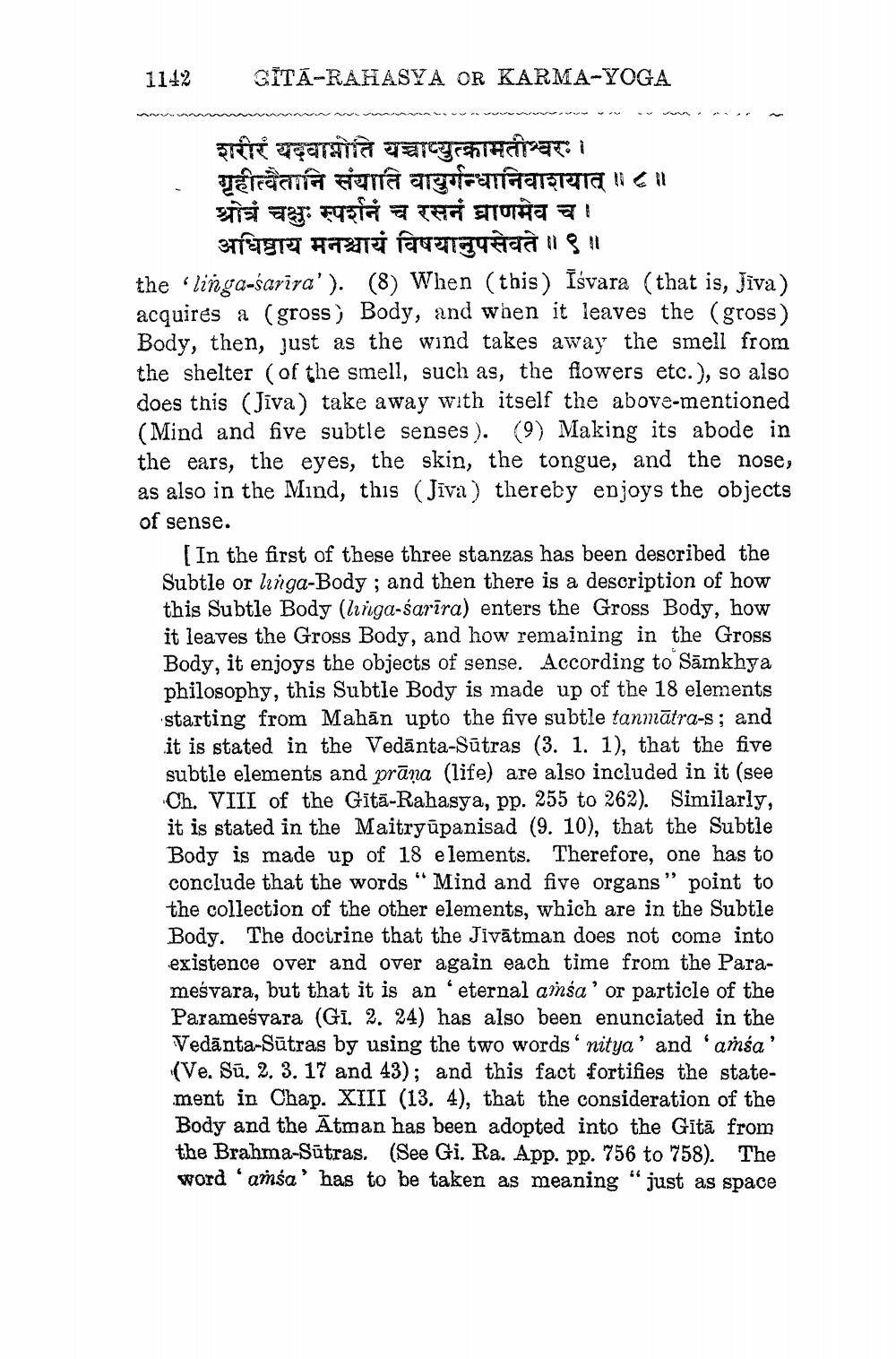________________
1142
CITA-RAHASYA OR KARMA-YOGA
शरीरं यदवाप्नोति यच्चाप्युत्क्रामतीश्वरः । गृहीत्वैतानि संयाति वायुर्गन्धानिवाशयात् ॥ ८ ॥ श्रोत्रं चक्षुः स्पर्शनं च रसनं घ्राणमेव च । अधिष्ठाय मनञ्चायं विषयानुपसेवते ॥ ९ ॥
the 'linga-sarira'). (8) When (this) Isvara (that is, Jīva) acquires a (gross) Body, and when it leaves the (gross) Body, then, just as the wind takes away the smell from the shelter (of the smell, such as, the flowers etc.), so also does this (Jiva) take away with itself the above-mentioned (Mind and five subtle senses). (9) Making its abode in the ears, the eyes, the skin, the tongue, and the nose, as also in the Mind, this (Jiva) thereby enjoys the objects of sense.
[In the first of these three stanzas has been described the Subtle or linga-Body; and then there is a description of how this Subtle Body (linga-sarira) enters the Gross Body, how it leaves the Gross Body, and how remaining in the Gross Body, it enjoys the objects of sense. According to Samkhya philosophy, this Subtle Body is made up of the 18 elements starting from Mahan upto the five subtle tanmatra-s; and it is stated in the Vedanta-Sutras (3. 1. 1), that the five subtle elements and prāna (life) are also included in it (see Ch. VIII of the Gita-Rahasya, pp. 255 to 262). Similarly, it is stated in the Maitryūpanisad (9. 10), that the Subtle Body is made up of 18 elements. Therefore, one has to conclude that the words "Mind and five organs" point to the collection of the other elements, which are in the Subtle Body. The doctrine that the Jivātman does not come into existence over and over again each time from the Parameśvara, but that it is an eternal amsa' or particle of the Parameśvara (GI. 2. 24) has also been enunciated in the Vedanta-Sutras by using the two words' nitya' and 'amsa' (Ve. Su. 2. 3. 17 and 43); and this fact fortifies the statement in Chap. XIII (13. 4), that the consideration of the Body and the Atman has been adopted into the Gita from the Brahma-Sutras. (See Gi. Ra. App. pp. 756 to 758). The wordamsa' has to be taken as meaning "just as space




